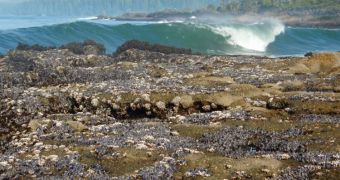Scientists with the University of British Columbia (UBC), in Canada, say that marine biodiversity loss will occur at a much faster rate than originally calculated. The main factors that contribute to this phenomenon are global warming – and the climate change it produces – and increased predation.
The latter rather comes with the territory, since shifting temperature ranges blur the edges between previously well-established habitats. As such, new species make their way into other habitats, wreaking havoc on lifeforms that are not accustomed to new predators.
It takes millions of years for an ecosystem to find balance, but introducing a new species can destroy that balance in short order. Marine biologists say that this is what will happen to oceanic and coastal species, whose habitats are now being invaded by new predators.
UBC zoologist Christopher Harley was the leader of the new investigation, which was detailed in the latest issue of the top journal Science. His study focused exclusively on how mussels and barnacles endure the effects of global warming and increased predation from sea stars.
“Rocky intertidal communities are ideal test-beds for studying the effects of climatic warming. Many intertidal organisms, like mussels, already live very close to their thermal tolerance limits, so the impacts can be easily studied,” says Harley.
The expert, who holds an appointment as an associate professor of zoology at the university, says that barnacles and mussels who are exposed to increased temperatures must live closer to the water line than they would normally choose to.
The reason why these lifeforms prefer to avoid this dangerous area is that sea stars can reach it as well. If mussels and barnacles live higher up the shoreline, then they are exposed to a smaller risk of being attacked by sea stars.
However, data collected in the field indicate that indeed these two families of species tend to move much closer to the shoreline than they are comfortable with. This also translates into increased predation rates, which further decreases their numbers.
Harley says that – at three of the sites included in his research – mussels and barnacles had gone completely extinct. This happened due to the combined pressure of global warming and sea stars.
“Warming is not just having direct effects on individual species. This study shows that climate change can also alter interactions between species, and produce unexpected changes in where species can live, their community structure, and their diversity,” he concludes.

 14 DAY TRIAL //
14 DAY TRIAL //